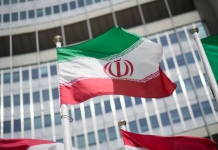DM Monitoring
UNITED NATIONS: Amid the swift withdrawal of US troops from Afghanistan, the top UN official in the Central Asian state told the UN Security Council that the Taliban fighters are flexing their muscles to gain greater control of the territory
“The Taliban’s advances are significant,” said Deborah Lyons, the Secretary-General’s Special Representative and Head of the United Nations Assistance Mission in Afghanistan (UNAMA), as she briefed the 15-member body and introduced the latest report of the Secretary-General.
Noting that more than 50 of Afghanistan’s roughly 370 districts have fallen to a Taliban military campaign since the beginning of May — some without resistance — Ms Luyons cautioned that the group is seizing area surrounding provincial capitals in an effort to position itself to take those centres once foreign forces are fully withdrawn.
With all the major indicators for Afghanistan’s security and development looking “negative or stagnant” as international troops withdraw, the threats that lie ahead cannot be overstated, the UN official said.
From politics to security, the peace process to the economy, Ms Lyons said the “possible slide toward dire scenarios is undeniable”.
“The relentless spirit of the Afghans and their incredible resilience is being severely tested”, she said, reminding that what happens there is “of global consequence”, and the Security Council needed to be fully aware of the gravity of the situation.
Ms. Lyons described the mid-April announcement, led by the United States, of troop withdrawal after two decades of war as a “seismic tremor” for the country, which had happened unexpectedly fast.
The decision to pull out was part of the February 2020 agreement between the US and the Taliban to create space for peace among Afghans, instead, “actions on the battlefield have been far greater than progress at the negotiating table”, she added.
She told council ambassadors that the public and the diplomatic community in Kabul have been “alarmed at the lack of political unity”, which must be addressed or risk contributing to further Taliban territorial advances.
Through its intensified military campaign, the Taliban has taken more than 50 of Afghanistan’s 370 districts since the beginning of May.
“Most districts that have been taken surround provincial capitals, suggesting that the Taliban are positioning themselves to try and take these capitals once foreign forces are fully withdrawn”, warned the Special Representative, calling it “a tragic course of action” that would lead to “increased and prolonged violence” and threaten to destroy much of what has been built and hard won over the past 20 years.
However, she noted that any effort to install a militarily imposed Government in Kabul would “go against the will of the Afghan people and against the stated positions of the regional countries and the broader international community”.
Meanwhile, nearly one-third of Afghans face emergency levels of food insecurity, as drought worsens, and internal displacements increases.
“The World Bank has estimated that as a result of the conflict, and the severe third wave of COVID, the drought, the weakened social fabric, and other factors, Afghanistan’s poverty rate could rise from 50 per cent to more than 70 per cent”, Ms. Lyons warned



